Make your diamonds sparkle with this easy homemade jewelry cleaner. This DIY cleaner only costs pennies to make and is safe and easy to use.
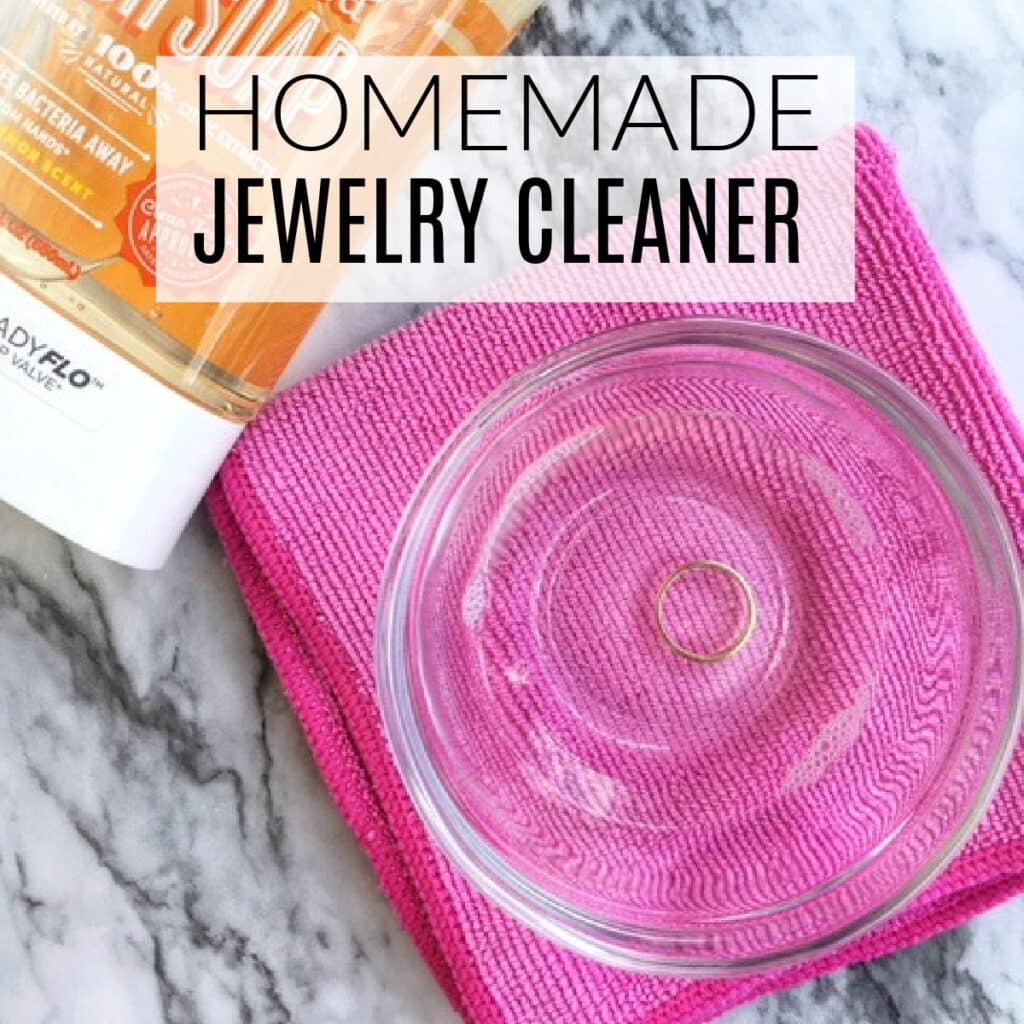
It seems like every time I buy some jewelry, I get a big container of jewelry cleaner "free" with it.
I had a container from my engagement ring, my wedding ring, and most recently my 10-year anniversary ring. They lasted for a while, but finally, a year or two ago I ran out of jewelry cleaner.
Since I don't anticipate getting any more jewelry anytime soon, I figured I should either buy some or make my own homemade jewelry cleaner.
I started on Pinterest looking for a good jewelry cleaner but they all seemed to use baking soda or salt. These are both great products for cleaning (here are 10 ways I use baking soda) but I didn't want to use them on my jewelry.
I have heard that even a hard-bristled brush can damage your rings, so I wasn't about to use something so abrasive as salt or baking soda in my homemade jewelry cleaner.
This solution works great, is very inexpensive to make, and won't damage my diamond rings. I try to make all the solutions I can, here are my 7 best household cleaners that you may like from scratch as well.
Table of contents
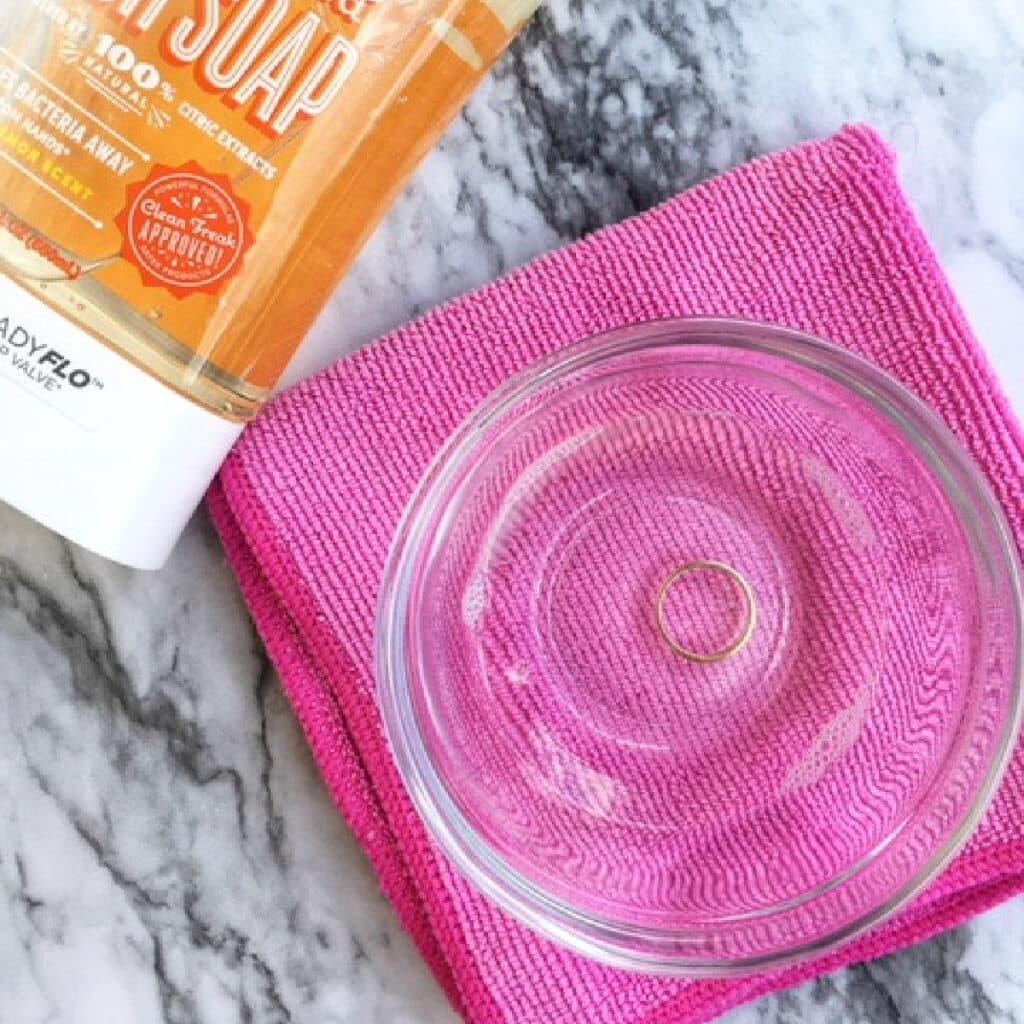
Why This DIY Solution Works
The vinegar helps get rid of any hard water or buildup on the jewelry and the dish soap helps break up any grease. Together, they help loosen all the dirt and grime so you can gently scrub it away. The toothbrush scrubs away any remaining dirt.
Does This Cleaner Work on All Jewelry?
I do want to warn you there are only certain jewels that do well with being cleaned at home. You can see a list here to find out if you can clean them with soap or if you should let your jeweler clean them.
Some jewelry like pearls are better to be cleaned by the jeweler instead of with the jewelry cleaner.
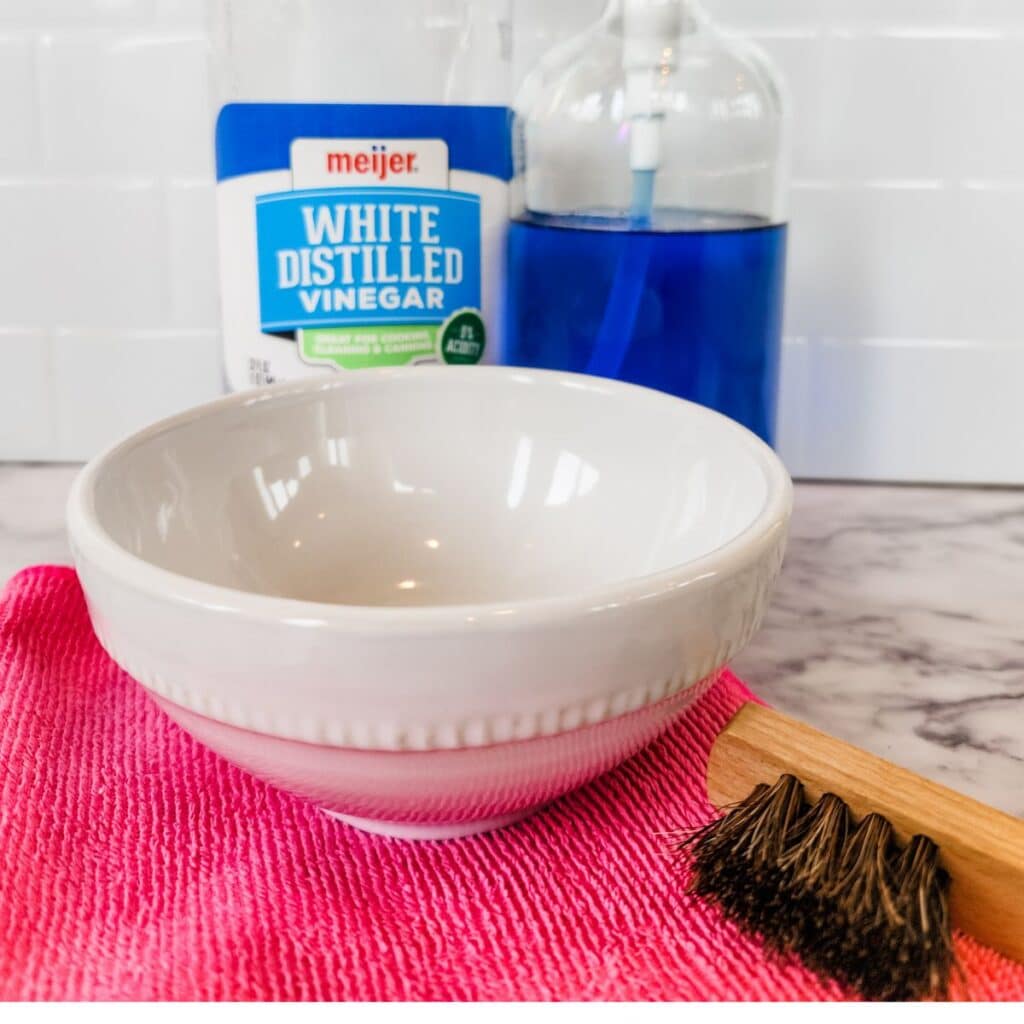
What You'll Need
- 5-6 drops of dish soap (any brand works)
- 2 tablespoons of vinegar (just the white vinegar)
- 2 tablespoons of water
- jewelry brush (or soft toothbrush)
How to Make the Best Homemade Jewelry Cleaner
Combine ingredients.
Mix water, vinegar, and dish soap in a small bowl.
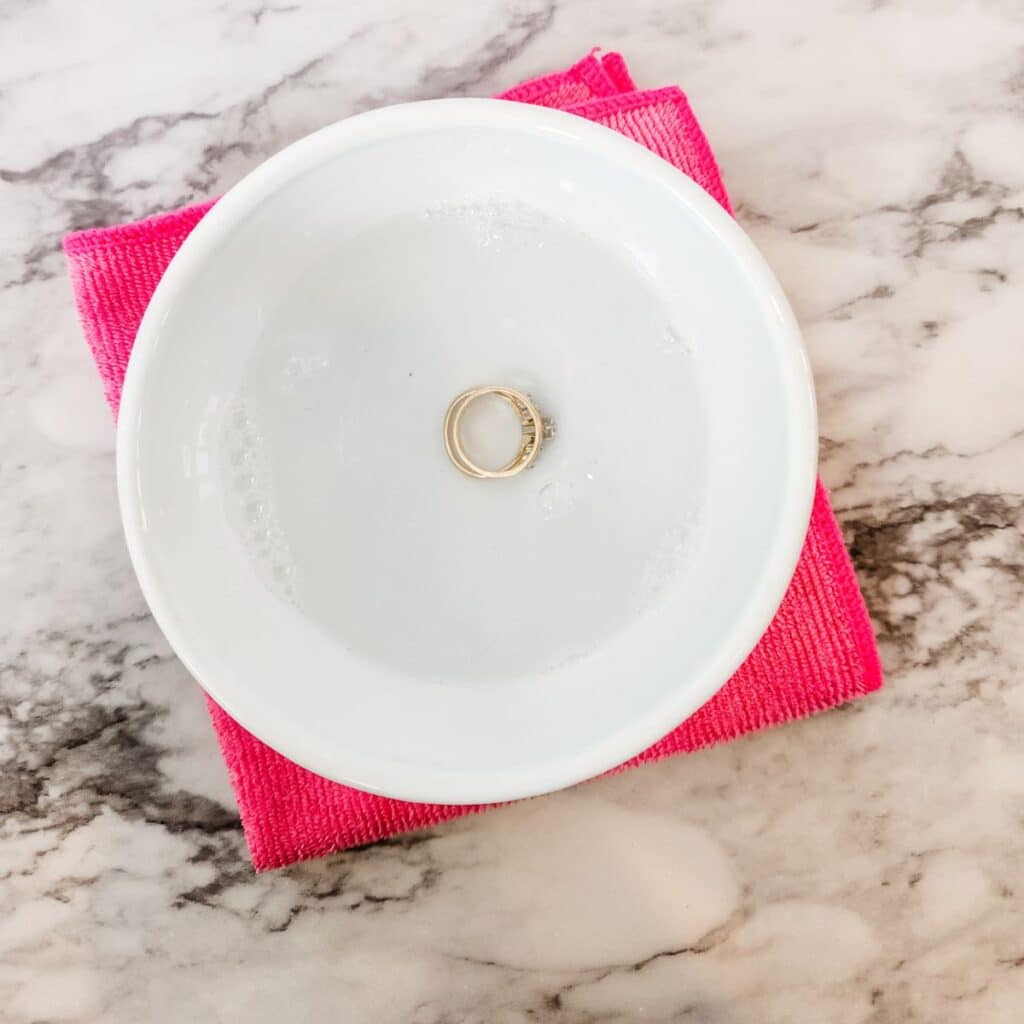
Soak the jewelry.
Let the jewelry sit for 30 minutes to an hour.
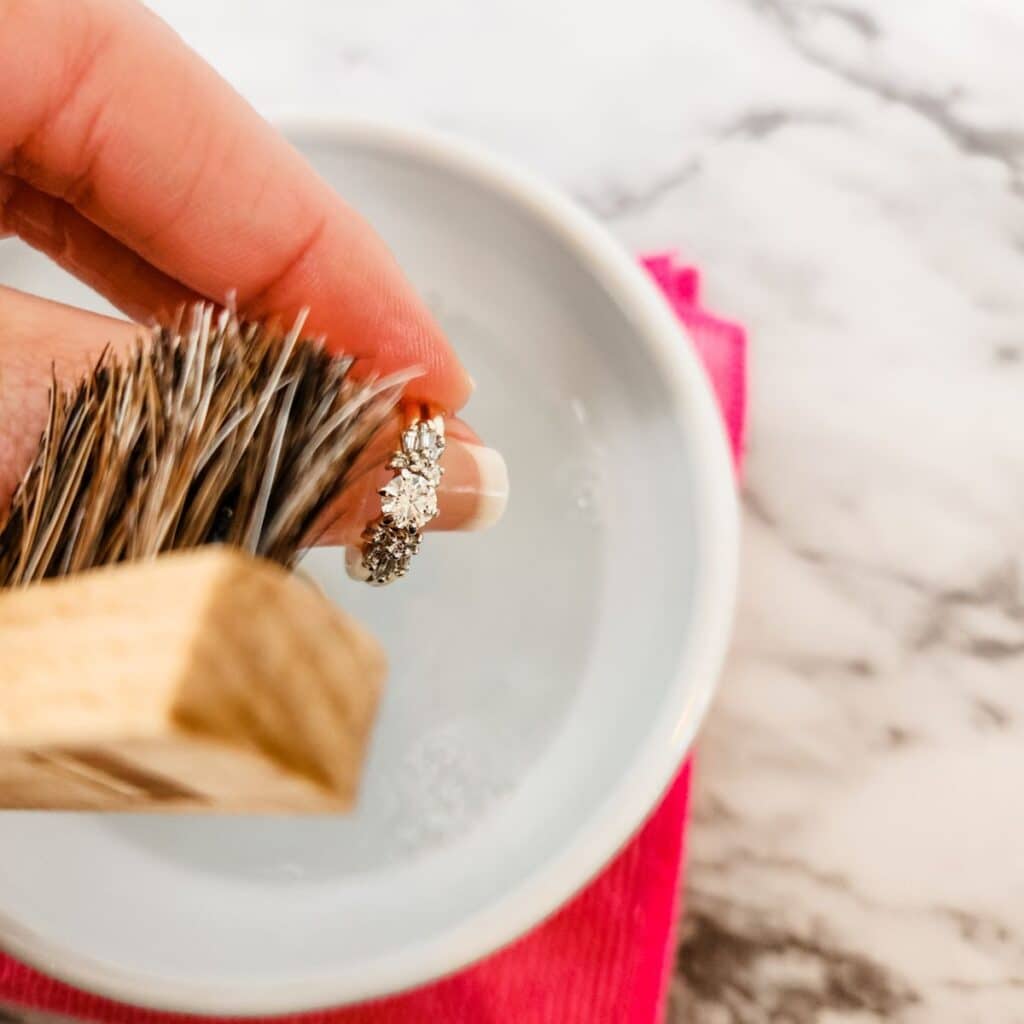
Scrub and rinse.
Then use a soft toothbrush (make sure it is labeled as a soft toothbrush to avoid any scratching) to gently scrub away any dirt or grime. Rinse the jewelry off in cool water and dry with a microfiber cloth.
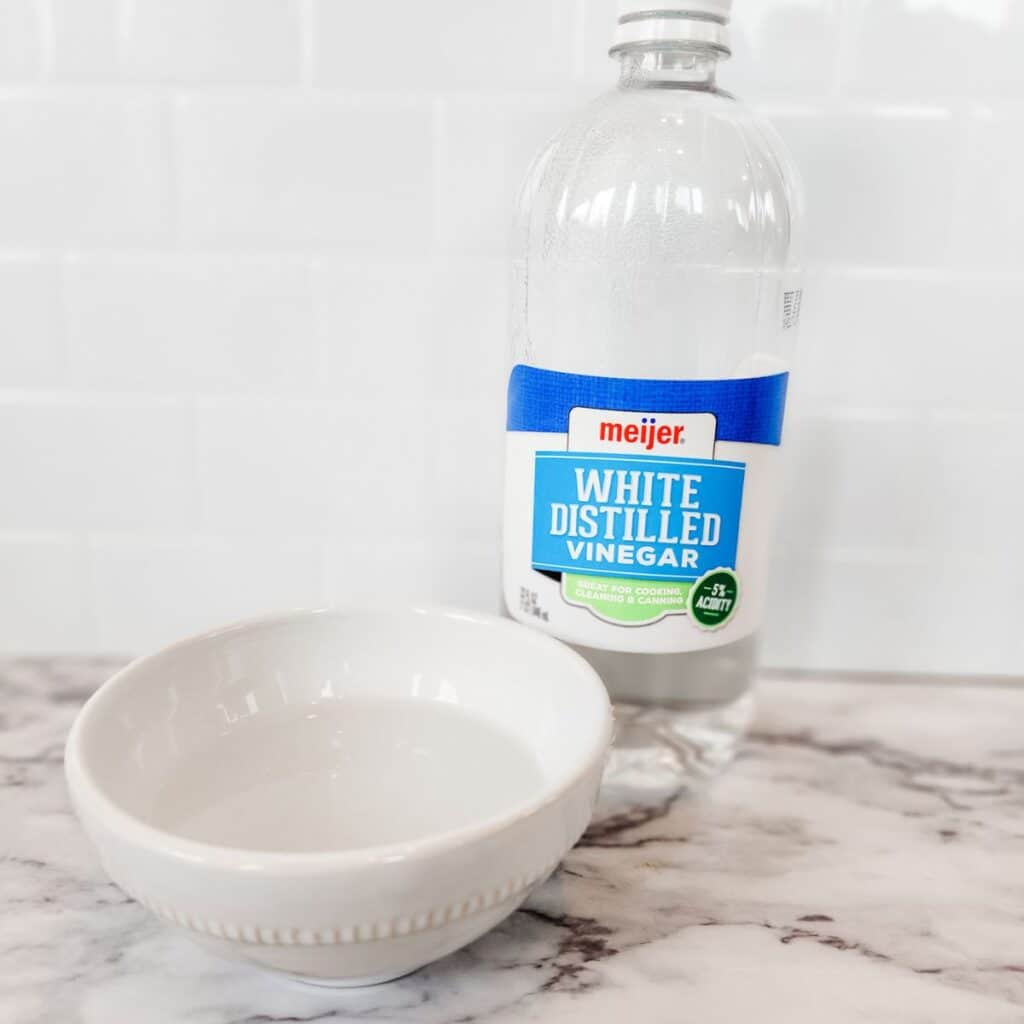
Cleaning Tips
- Use water that is about room temperature, not too hot and not too cold. Some gemstones do not handle the sudden temperature change well.
- When drying your rings, be sure you are careful to not damage the prongs. You can also let them air dry.
- Do not use more vinegar than what is listed in the recipe. Vinegar is acidic and if too much is added, it can damage certain types of jewelry, such as copper or porous stones.
- Always use a clean or new toothbrush. Old toothbrushes can have toothpaste residue that is not healthy for jewelry. Also, dedicate this toothbrush to just cleaning rings and such. You don't want to cross contaminate with other cleaning solutions.
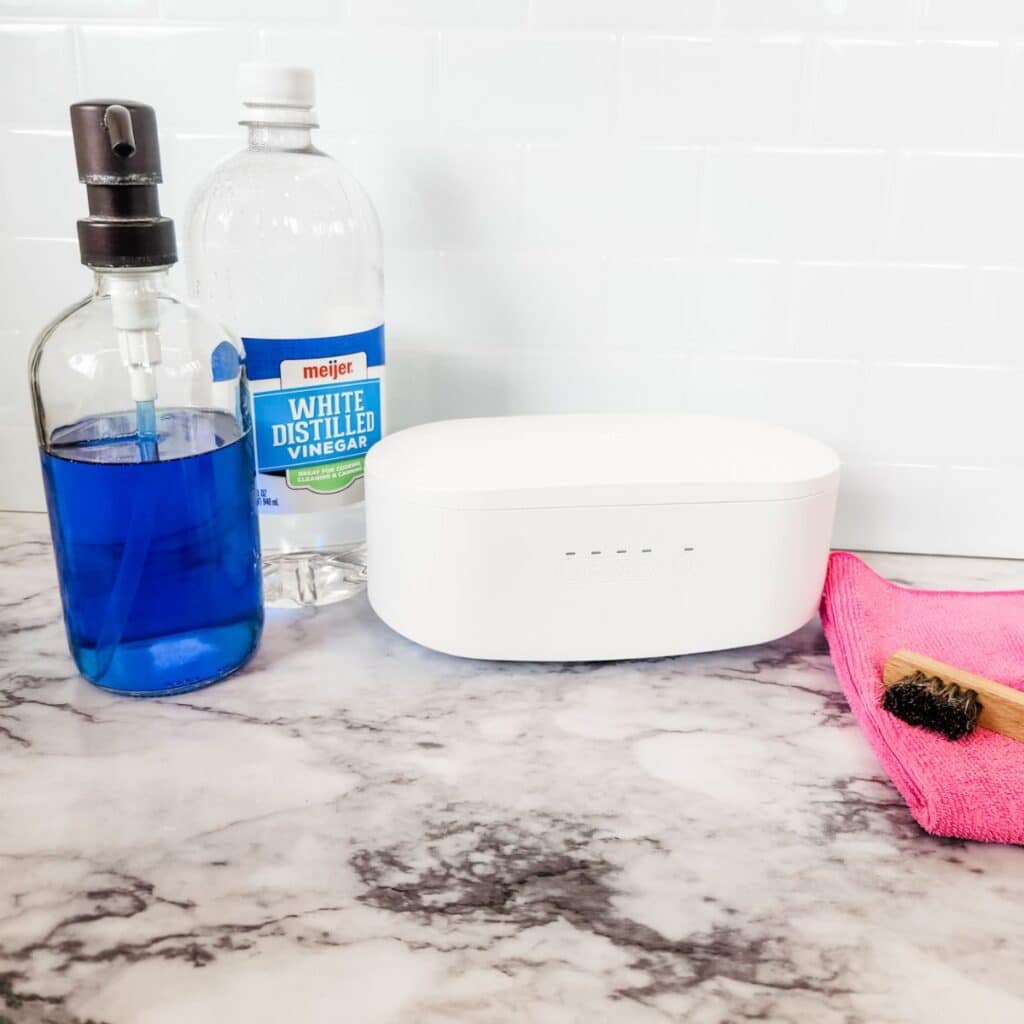
How to Keep Your Jewelry Clean and Shiny
- Store your jewelry properly: Proper storage can prevent your jewelry from getting scratched, tangled, or damaged. Store your jewelry in a jewelry box or a soft pouch, and keep each piece separate to prevent scratching.
- Remove jewelry before swimming or showering: Water, especially chlorinated or saltwater, can damage your jewelry. It's best to remove your jewelry before swimming or showering to avoid damage.
- Clean your jewelry regularly: Regular cleaning can prevent dirt and oils from building up on your jewelry, which can cause it to look dull or become discolored.
- Avoid contact with chemicals: Chemicals such as perfume, hairspray, and cleaning products can damage your precious jewels. Avoid spraying these products directly and wait until they are dry before putting on your jewelry.
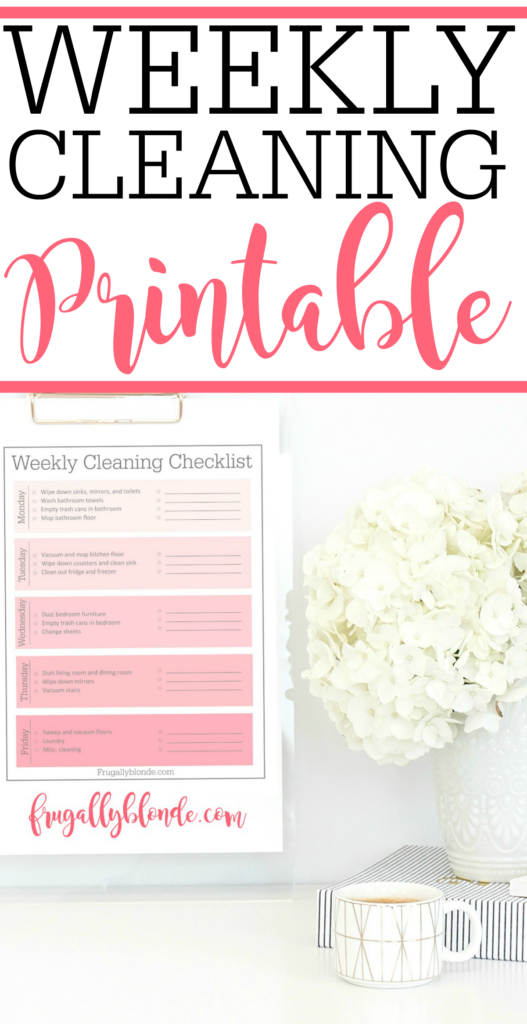
Free Weekly Cleaning Printable
Clean your home in under 30 minutes a day with this free Weekly Cleaning printable!
Common FAQs
Abrasive materials: Avoid using abrasive materials such as toothpaste, baking soda, or scouring pads to clean jewelry, as they can scratch the surface.
Harsh chemicals: Avoid using harsh chemicals such as bleach, ammonia, or acetone to clean jewelry, as they can damage the metal, discolor the gemstones, or remove the protective coating of certain metals.
Ultrasonic cleaners: While ultrasonic cleaners can be effective in cleaning some types of jewelry, they can also cause damage to delicate or porous materials, such as pearls, opals, or emeralds.
Hot water: Avoid using hot water to clean jewelry, as it can cause certain materials, such as pearls, to become damaged or discolored.
You can use the same mix above in your ultrasonic cleaner. It works great as a homemade ultrasonic cleaning solution to get your rings sparkling clean.
Hydrogen peroxide can be used to clean some types of jewelry (such as silver and gold), but it is important to use it carefully and avoid using it on certain types of jewelry that may be sensitive to it.
Avoid using hydrogen peroxide on jewelry that contains pearls, opals, emeralds, or other delicate gemstones, as well as any plated jewelry. I
f your jewelry has any signs of damage or wear, it's best to avoid using hydrogen peroxide or any other harsh cleaning solutions on it and instead have it professionally cleaned.
You don't need any expensive jewelry cleaner to clean your rings. For just pennies and a few minutes of your time, you can have your rings sparkling with this homemade jewelry cleaner!
Looking for some other great cleaners? Check out my favorite homemade cleaners you can make for pennies!


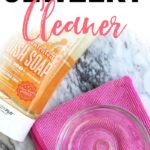
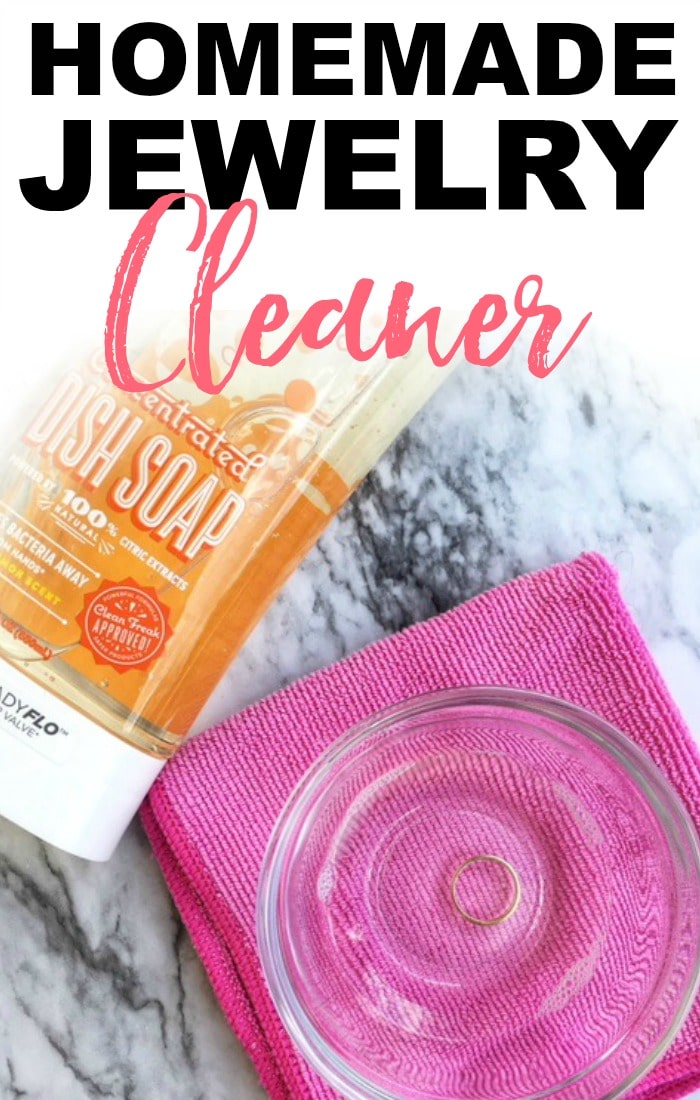
Trudie says
Where did you purchase above rings? Love the styles!
Lindsey Mozgai says
I hardly ever wear jewlry. But I know my engagement ring is looking a little rough lol. Is this safe to use on that?
Julie says
Yes, I have used it on my diamond engagement ring many times. It works great!
Lindsey Mozgai says
Great! I'll have to try it out.